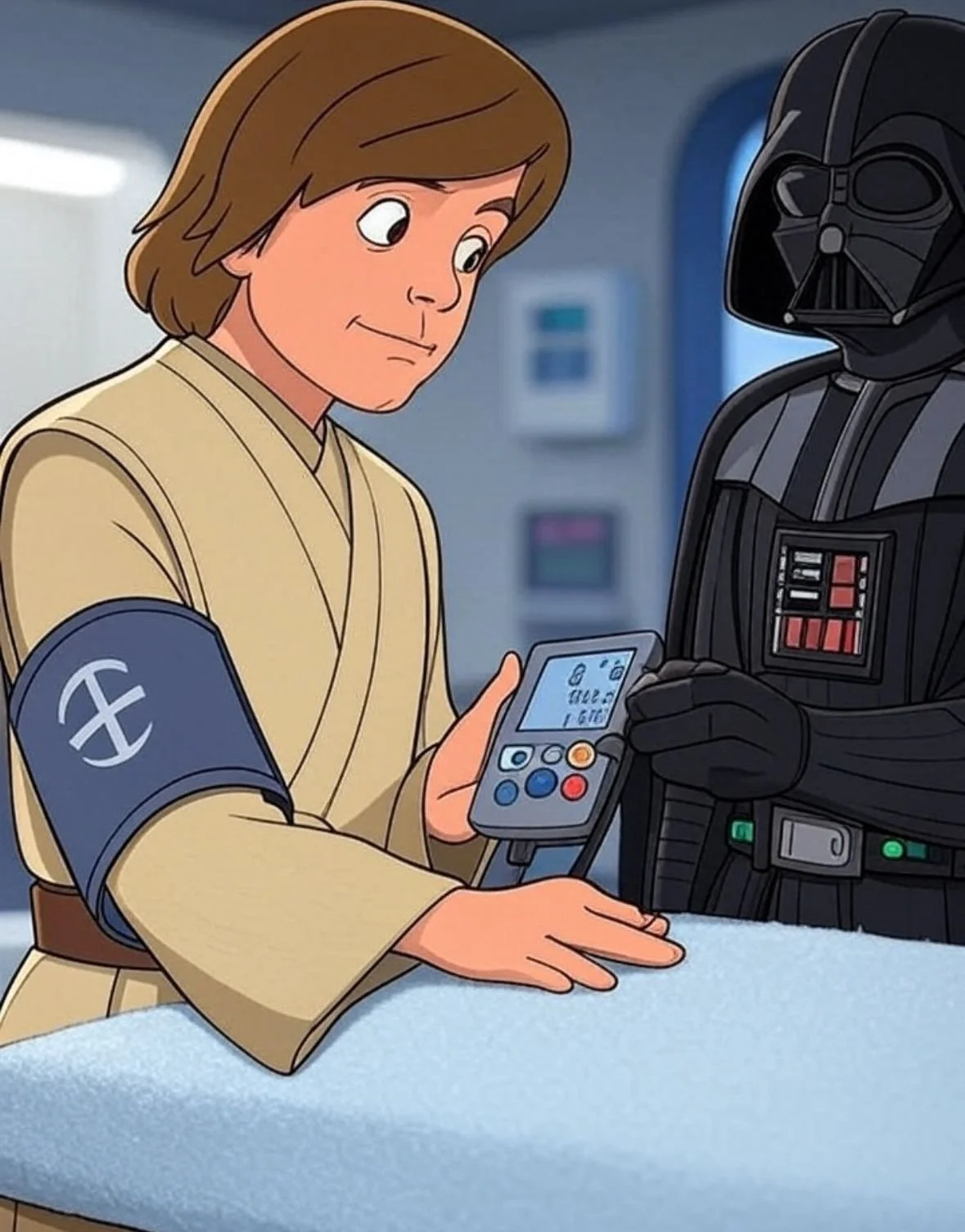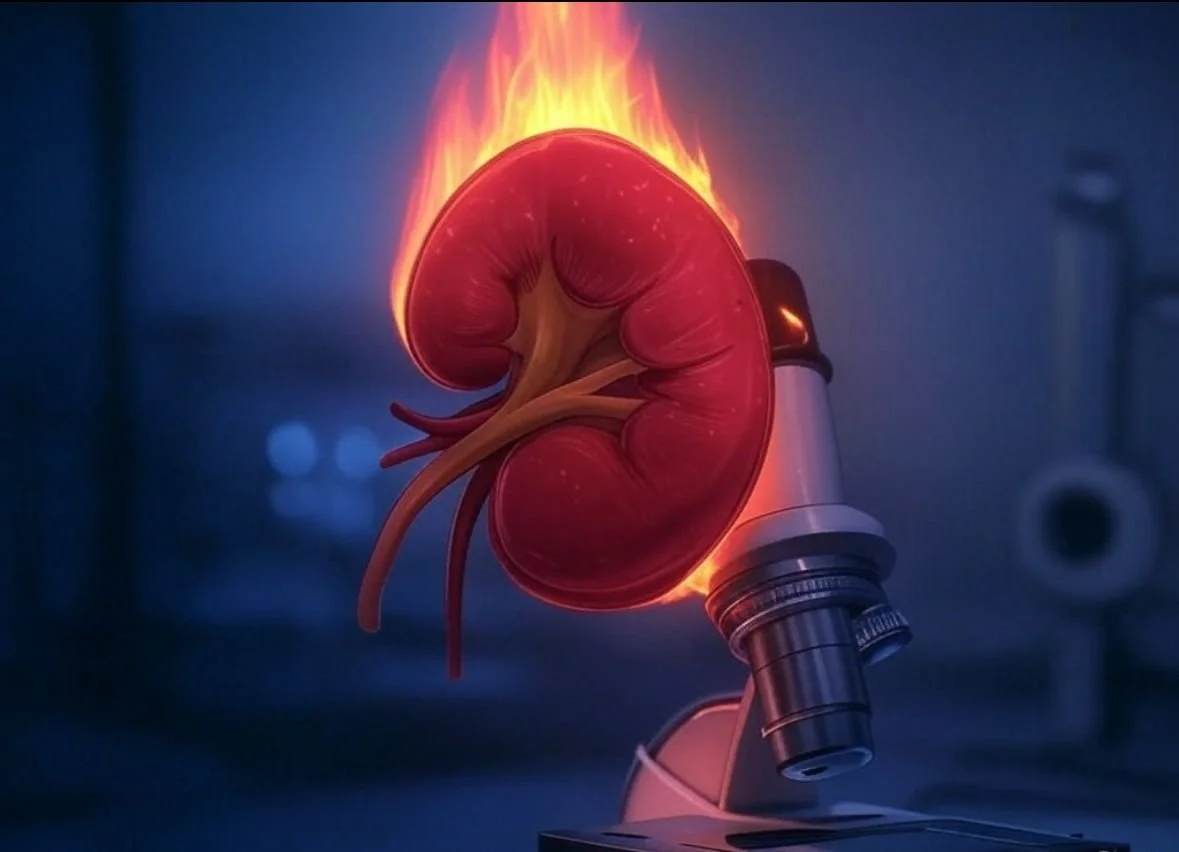The SGLT2 inhibitor empagliflozin in patients hospitalized for acute heart failure: a multinational randomized trial (Voors, Nature Medicine 2023)
🤔 Timing of BP medications, aka chronotherapy
Cardiovascular outcomes in adults with hypertension with evening versus morning dosing of usual antihypertensives in the UK (TIME study): a prospective, randomised, open-label, blinded-endpoint clinical trial (Mackenzie, The Lancet 2023)
🤔 Spooky sodium, not so spooky
Tissue sodium excess is not hypertonic and reflects extracellular volume expansion (Rossitto, Nature Communications 2020)
🤔 Coffee and the kidneys
CYP1A2 Genetic Variation, Coffee Intake, and Kidney Dysfunction (Mahdavi, JAMA Network Open 2023)
🤔 Improving decision making in CKD
Effectiveness of an Intervention to Improve Decision Making for Older Patients With Advanced Chronic Kidney Disease (Ladin, Annals Int Med 2023)
🤔 Hypothermia or machine perfusion for kidney transplant?
Hypothermia or Machine Perfusion in Kidney Donors (Malinoski, NEJM 2023)
🤔 Covered Stent for AVF, An RCT
Prospective, randomized, multicenter clinical study comparing a self-expanding covered stent to percutaneous transluminal angioplasty for treatment of upper extremity hemodialysis arteriovenous fistula stenosis (Dolmatch, Kidney International 2023)
🤔 Yet another race-free GFR equation, this one for transplant!
Race-free estimated glomerular filtration rate equation in kidney transplant recipients: development and validation study (Raynaud, BMJ 2023)
🤔 Another GFR equation, this one is from Europe
Cystatin C–Based Equation to Estimate GFR without the Inclusion of Race and Sex (Pottel, NEJM 2023)
🤔 Heterogeneity in BP response
TheHeterogeneity in Blood Pressure Response to 4 Antihypertensive Drugs: A randomized clinical trial (Sundstrom, JAMA 2023)
🤔 Epo production in kidneys
The transcriptional and regulatory identity of erythropoietin producing cells (Kragesteen, Nature Medicine 2023)
🤔 Precision diagnostics of kidney allograft biopsies
An automated histological classification system for precision diagnostics of kidney allografts (Yoo, Nature Medicine 2023)
🤔 Screening for albuminuria is cost-effective
Population-Wide Screening for Chronic Kidney Disease: A Cost-Effectiveness Analysis (Cusick, Annals Int Med 2023)
🤔 RASi might be harmful in COVID
Effect of Angiotensin-Converting Enzyme Inhibitor and Angiotensin Receptor Blocker Initiation on Organ Support–Free Days in Patients Hospitalized With COVID-19 (REMAP-CAP Investigators, JAMA 2023)
🤔 RASi + diuretics better than RASi + CCB in CKD?
A nationwide cohort study comparing the effectiveness of diuretics and calcium channel blockers on top of renin-angiotensin system inhibitors on chronic kidney disease progression and mortality (Faucon, Kidney International 2023)
🤔 Improving Fatigue in Dialysis - The TACCare trial
Effects of Technology Assisted Stepped Collaborative Care Intervention to Improve Symptoms in Patients Undergoing Hemodialysis (Jhamb, JAMA Internal Medicine 2023)
🤔 Intradialytic exercise improves physical functioning
Exercise during Hemodialysis in Patients with Chronic Kidney Failure (Anding-Rost, NEJM Evidence 2023)
✏️ Taurolidine to prevent CRBSI
🤔 Self managed BP control after pregnancy
Long-Term Blood Pressure Control After Hypertensive Pregnancy Following Physician-Optimized Self-Management: The POP-HT Randomized Clinical Trial (Kitt, JAMA 2023)
✏️ Salt reduction still lowers BP
Effect of Dietary Sodium on Blood Pressure: A Crossover Trial (Gupta, JAMA 2023)
We know reducing sodium intake lowers blood pressure (BP), but what is truly the effect in those with normal BP versus high BP? Those taking BP meds versus those who do not? In the Coronary Artery Risk Development in Young Adults (CARDIA)–SSBP trial (Gupta et al, JAMA 2023), the investigators enrolled 213 individuals either with normal BP or not, and either on BP meds with controlled or uncontrolled hypertension. They crossed over from the usual diet to low sodium (diet with 500 mg i.e. ~ 25 mmol sodium) and high sodium (with 2 bouillon packets, each containing 1100 mg of sodium added to the usual diet). The low sodium diet did result in lower BP in all subgroups, by about 5 - 6 mmHg SBP in the normotensive/controlled hypertension subgroups to about 9 - 190 mmHg SBP in the uncontrolled/untreated hypertension subgroups. Though the authors say these are not significantly different based on interaction p values, the subgroups are woefully underpowered to say that. Note that diet allocation was on alternate days, so this was not a randomized trial. Additionally - despite being provided food and daily phone calls, people on low sodium couldn’t stick to the provided saltless diet (24 hour urine sodium 1.7g rather than 0.5 g) and even the high sodium group couldn’t stomach the extra 2.2g bouillon (24 hour urine sodium went up from 4.6 to 5.5 rather than expected 6.8 g/day). So, an extremely low sodium diet does lower BP a bit, but it’s hard to achieve even if you are provided the food. Salt substitutes are so much more pragmatic!
Swapnil Hiremath






